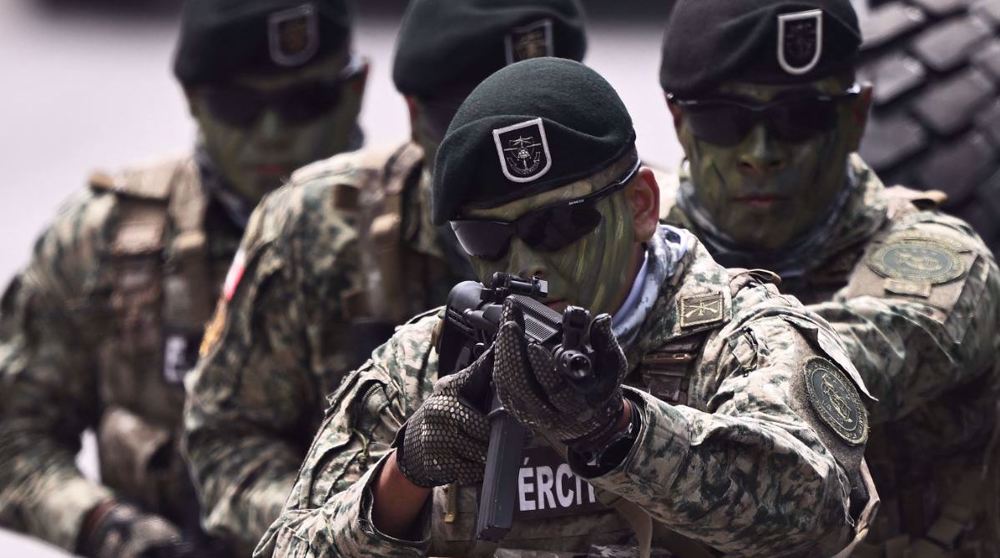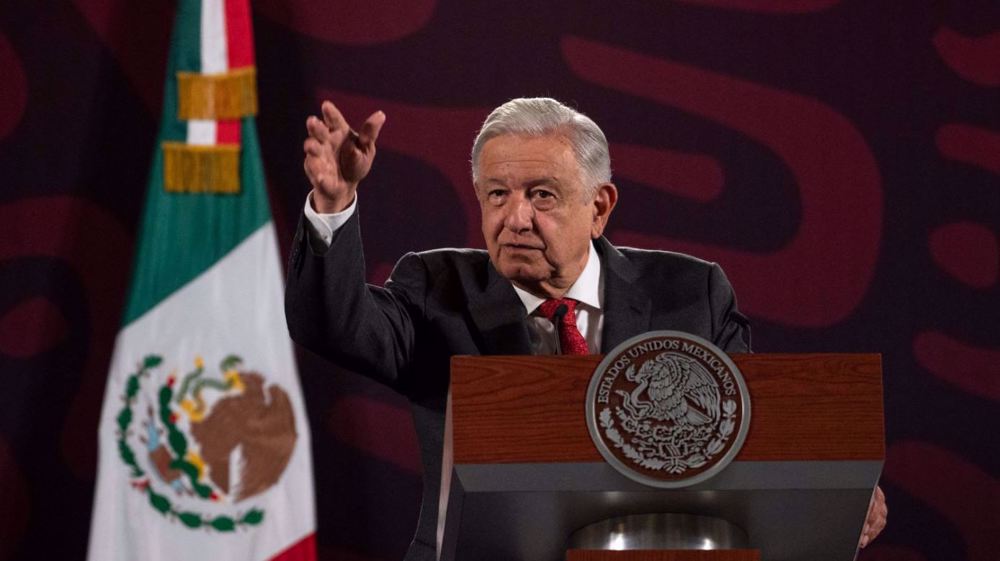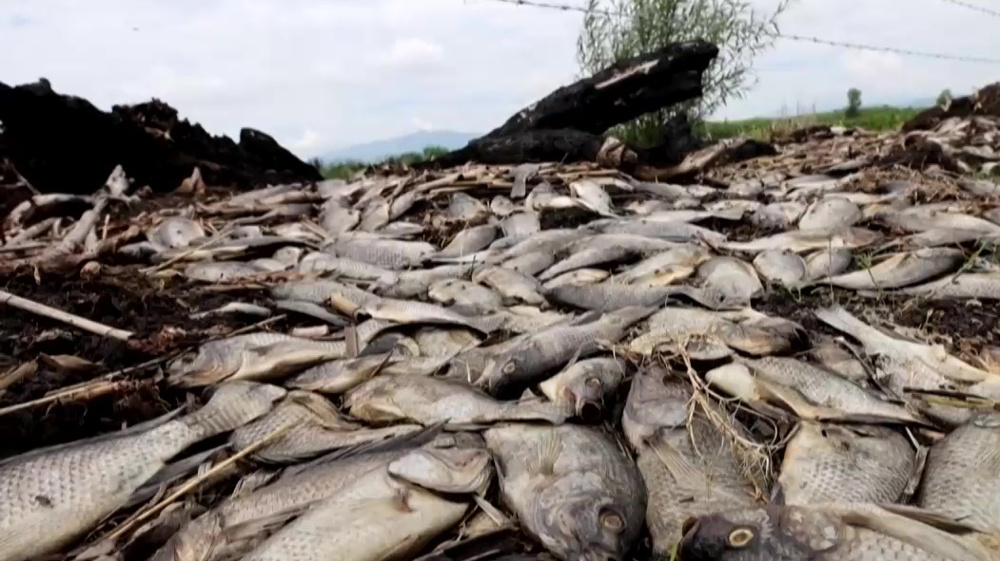Families of 43 missing students clash with riot police
The relatives of the 43 students that went missing in Mexico last year have clashed with riot police amid spiraling protest rallies ahead of the country’s midterm elections.
On Wednesday, police blocked buses carrying more than 100 family members of the missing young men as well as fellow students from the Ayotzinapa teacher training college to Guerrero State’s capital, Chilpancingo, said Felipe de la Cruz, a spokesman for the families.
The individuals stopped were heading to Chilpancingo to hold an anti-government demonstration there.
Scuffles erupted at the scene when a group of protesters standing on top of a tunnel hurled stones at the security forces on the road below, prompting police to fire tear gas at them near the town of Tixtla.

Two students and an officer were reportedly injured during the clashes.
On September 26, 2014, the 43 students, all trainee teachers, disappeared in the city of Iguala in the southern state of Guerrero, following an attack by police forces suspected of having links to drug gangs. The incident took place during a protest rally over teachers’ rights.
The parents of the students say corrupt local police abducted the missing students and handed them over to a drug gang, which purportedly killed them.
Angry with the government’s poor handling of the case, the parents have vowed to block midterm elections, which are scheduled to be held on June 7.
The clashes come as Mexican teachers, who are against government-proposed education reforms, have been staging anti-election protest rallies in other parts of Mexico since June 1.

The teachers took to the streets despite the Mexican Education Ministry’s decision to suspend a major component of the legislation, which urges mandatory testing for teachers on May 29.
On Wednesday, some 300 members of the teachers’ union CNTE used trucks to block an international airport in the neighboring state of Oaxaca. The blockage cancelled several flights.
Also in Oaxaca, teachers stormed into electoral headquarters and burned more than 10,000 ballots earlier this week.
In the June 7 elections, eligible voters are supposed to elect 500 members of the lower chamber of the Mexican Congress and mayors in nearly 900 municipalities and governors in nine Mexican states.
MIS/MKA/HJL
Israel admits assassinating Hamas leader, vows to inflict same fate on Yemeni fighters, people
VIDEO | Yemeni forces repel US-British attack, down F-18 Jet
Iran’s capabilities vast; enemy’s ‘maximum pressure’ policies all failed miserably: Senior official
Iran’s economy grew 2.7% y/y in Sep quarter: CBI
VIDEO | Freelancers in Gaza strive to stay online amid genocide
Mikati demands Israel's withdrawal from south Lebanon
Yemeni army strikes Israeli military sites with drones
‘Clock ticking’: UNRWA slams unjustifiable killing of children in Gaza










 This makes it easy to access the Press TV website
This makes it easy to access the Press TV website